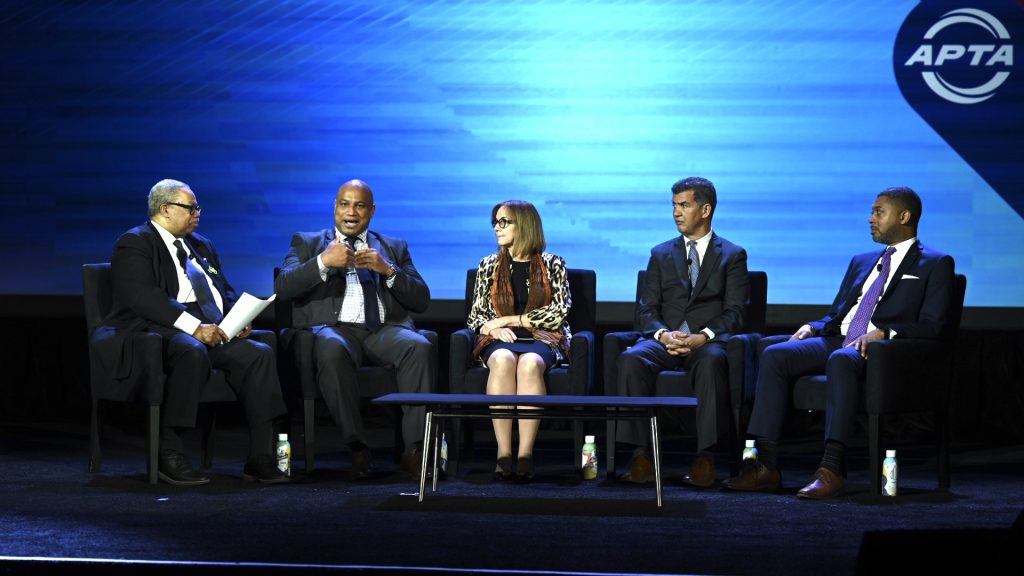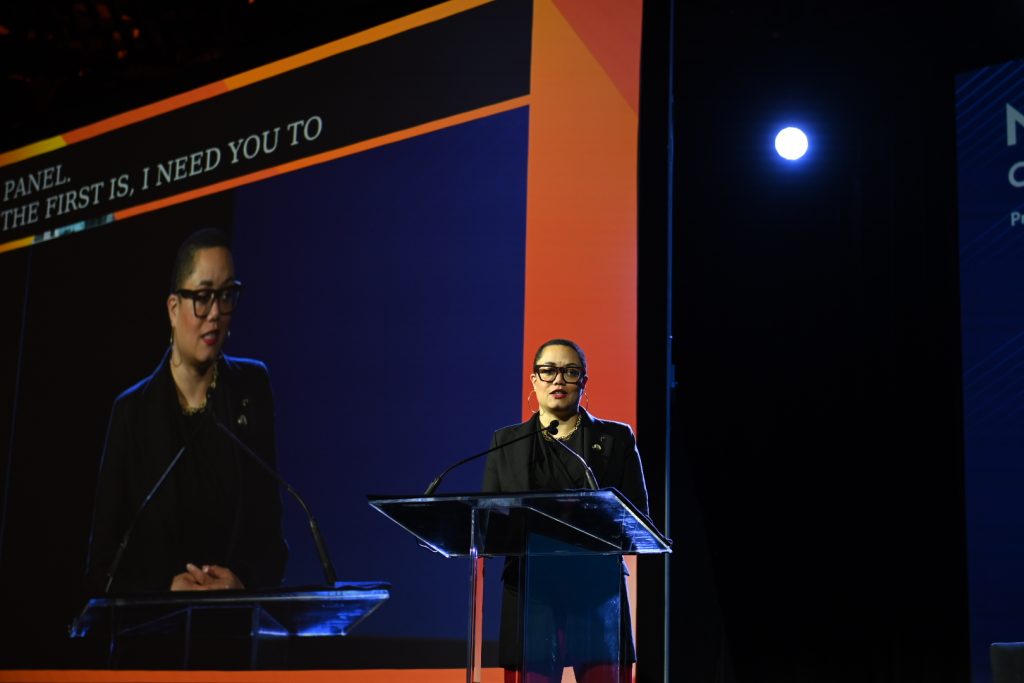Transit Remains a Key City Partner for Mobility, Equity
5/13/2024

Cities of the future will depend on today’s public transportation agencies having a bold vision—of shared corridors, transit-oriented development, alternative modes, and of equity.
Diversity, equity, and inclusion (DEI) was a dominant theme in the Future of Cities Relies on the Strength of Public Transportation general session at APTA’s Mobility Conference, starting with opening remarks from Irene Marion, director of the Departmental Office of Civil Rights, USDOT. “We know it aligns with American values, we know it aligns with the work that you have in the transit space,” she said. “DEI work is going to continue to be important and also at the forefront of transportation.”
That work, the session panelists agreed, has a clear intersection of transportation and housing, which are most residents’ largest expenses. In a discussion led by moderator Dorval R. Carter, Jr., APTA immediate past chair and president, Chicago Transit Authority, the panel shared observations about advancing transit and equity together.
“The strength of public transportation is absolutely rooted in the path from poverty to prosperity,” said Travis Stovall, vice chair for public transit, U.S. Conference of Mayors, and mayor, City of Gresham, OR. He cited research on obstacles to upward mobility that listed access to transportation second, after affordable childcare.
Transportation, Stovall said, is a catalyst to solving problems, from traffic congestion and failing streets, to economic development, climate action, and for marginalized community members, “ensuring we have the opportunity to put those rungs back in that ladder.”

Christopher Coes, acting under secretary of transportation policy, USDOT, called transportation “a bedrock economic driver,” and urged agencies to rethink their roles. “You’re no longer a transit agency, you’re a mobility provider, you’re potentially a housing provider, and so much more.”
Eileen Higgins, county commissioner, Miami-Dade, Miami-Dade Transit, felt it was the responsibility of local government to solve their communities’ housing and transportation problems together, not in silos. She also anticipated a change in transit services, from commuter-based, to more resident-based, midday, and weekend service. “What we are providing is the ability for people to get to jobs, to get to schools, to a park … and that is what transportation is completely about. I really do believe that our cities will falter if we don’t deal with mobility through transportation,” she said.
Ydanis Rodriguez, commissioner, New York City DOT, referred often to community engagement and a change in culture, which he was starting to see happen in his city. He urged greater investment in transportation deserts so people could live without private cars. “Transportation touches the lives of everyone,” he said. The challenge ahead is “How do we reorganize our public spaces in a way that serves the purpose of everyone, and knowing that public transportation is and will always be the center?”
STV Incorporated sponsored the session.
See more images from the conference.